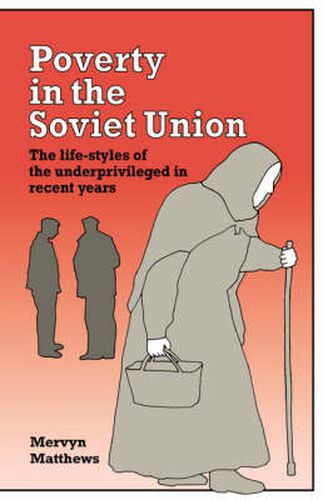Readings Newsletter
Become a Readings Member to make your shopping experience even easier.
Sign in or sign up for free!
You’re not far away from qualifying for FREE standard shipping within Australia
You’ve qualified for FREE standard shipping within Australia
The cart is loading…






The book deals with the continuing problem of poverty in Soviet society, a problem which the Revolution of 1917 was supposed to solve in a planned and expeditious manner. The topic is important both because it involves large numbers of people, and because it illustrates a major failing of Marxism-Leninism in practice. The book attempts to analyse Soviet poverty both from Soviet and western sources: the former are very limited, because discussion of poverty in the USSR falls under a strict censorship ban. This is one of the reasons why it has been so sadly neglected by western observers. The analysis concerns itself with most of the common problems of poverty and under-privilege in an industrialised society. Exclusion from the political process, and the particular social implications of the constitutional status of labour as both a right and a duty, are examined in an account that emphasises life-style and social problems, rather than merely the content of the wage-packet. Dr Matthews concludes with a survey of social mobility both into and out of the poverty state, and makes a cautious comparison between the situation of the poor in the Soviet Union and that pertaining to the USA and other ‘Soviet-type’ societies in eastern Europe.
$9.00 standard shipping within Australia
FREE standard shipping within Australia for orders over $100.00
Express & International shipping calculated at checkout
The book deals with the continuing problem of poverty in Soviet society, a problem which the Revolution of 1917 was supposed to solve in a planned and expeditious manner. The topic is important both because it involves large numbers of people, and because it illustrates a major failing of Marxism-Leninism in practice. The book attempts to analyse Soviet poverty both from Soviet and western sources: the former are very limited, because discussion of poverty in the USSR falls under a strict censorship ban. This is one of the reasons why it has been so sadly neglected by western observers. The analysis concerns itself with most of the common problems of poverty and under-privilege in an industrialised society. Exclusion from the political process, and the particular social implications of the constitutional status of labour as both a right and a duty, are examined in an account that emphasises life-style and social problems, rather than merely the content of the wage-packet. Dr Matthews concludes with a survey of social mobility both into and out of the poverty state, and makes a cautious comparison between the situation of the poor in the Soviet Union and that pertaining to the USA and other ‘Soviet-type’ societies in eastern Europe.